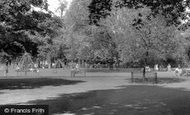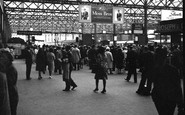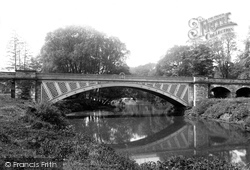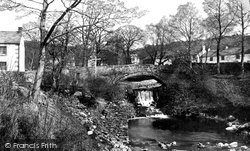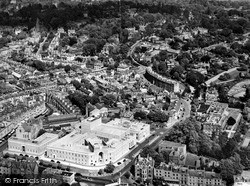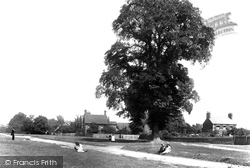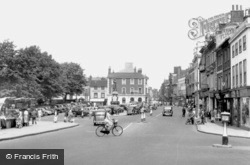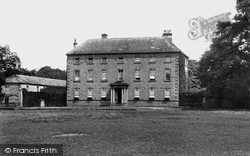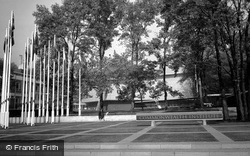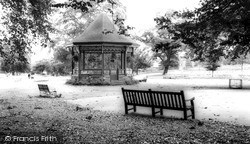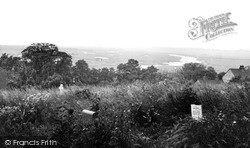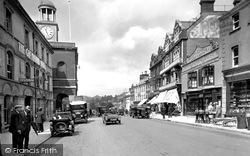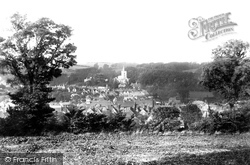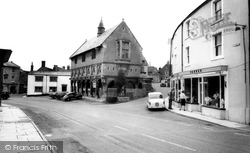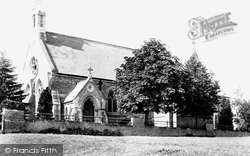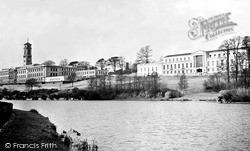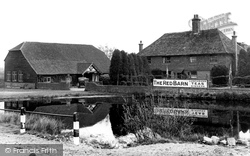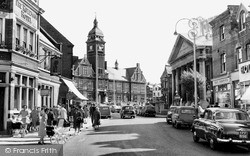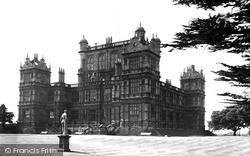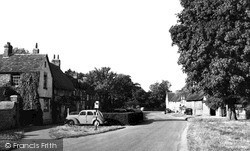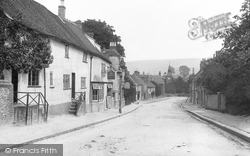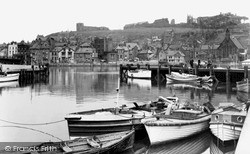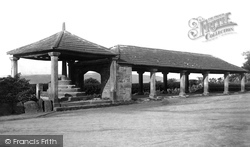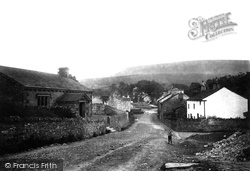Places
2 places found.
Those places high-lighted have photos. All locations may have maps, books and memories.
Photos
12 photos found. Showing results 121 to 12.
Maps
28 maps found.
Books
Sorry, no books were found that related to your search.
Memories
653 memories found. Showing results 61 to 70.
My Youth
I was born at Springend near Horbury in 1948, lived at 40 Northfield Lane, Horbury emigrated to Australia in 1961. I remember the Library, spent hours there reading the famous five books and secret seven, still do. Whites fish and chip ...Read more
A memory of Horbury in 1950 by
The Raf Estate
We lived on the RAF estate in Ickenham during the late 1950s, in a semi-detached house at 14 Nettleton Road. Every RAF home mirrored the next; their furnishings were also identical. You could move from Scotland to England (which we ...Read more
A memory of Ickenham in 1957 by
Sittingbourne To Australia
My name is Margaret. I was born in Park Road, Sittingbourne on 18.4.45. My parents were Flossie and Cyril Neaves. My dad worked as a machine man in the Sittingbourne paper mills and my mum worked fruit picking in ...Read more
A memory of Sittingbourne in 1971 by
Larkhall Tavern
My brother used to live in Chelsham Rd. in Clapham, London, which runs from Gauden Rd. to Union Rd. In 1960 & 1961, I stayed with him for a week's holiday. He was on British Rail at Nine Elms. He has since passed away ...Read more
A memory of Clapham in 1960 by
Goldthorpe In The Fifties
I was born in 1946 and lived in Manor Avenue. Cricket with dustbin lids propped up with a house brick in the "backins" were our stumps and we played from dawn to dusk during the summer holidays...except during Wimbledon ...Read more
A memory of Goldthorpe by
Rivacre Baths.
For those who never saw (or may have forgotten), the photo shows the view you had after coming in through the main entrance. The large fountain can be seen in the foreground, and was enjoyed by many children as they ran around ...Read more
A memory of Little Sutton in 1947 by
A Beautiful Place
I arrived in 1953 to live with my father and stepmother in Marbury. I have very mixed feelings of my life here. The countryside was beautiful, my love of nature and animal life has never left me. Bill's lawns (our name for the ...Read more
A memory of Marbury in 1953 by
The Real Winters Of The 1940s
I recall, with the occasional shudder, the freezing cold winters of the 1940s. I spent Saturday evenings earning a couple of shillings (that's 10p to you youngsters!!) working from 4.30pm to 6.00pm selling ...Read more
A memory of Motspur Park in 1948 by
The Hub Of My Young Universe
London's main railway stations truly are wonderful and Charing Cross was the one that I frequented the most as I travelled every weekday from Woolwich Arsenal in SE London to Green Park Underground, near the great ...Read more
A memory of London in 1959 by
Village Life
My first visit to the village of Llanferres was in the mid 1970s visiting relatives. Walking to 'Fairy Glen' and surrounding fields, hills, woods and farmland, I was in heaven and still am after 30+ years living in the beautiful ...Read more
A memory of Llanferres in 1950 by
Captions
196 captions found. Showing results 145 to 168.
From the late 17th century, Sprotborough Hall dominated the village for three hundred years, before death duties forced its sale in September 1925.
Near to the Three Peaks, Clapham's old Manor House (1701) is now used by the National Parks Centre. The original pigeon holes can still be seen in the gable ends.
In the late 1950s all this area was cleared to build a multi-storey car park.
Croxley Green lies east of the River Chess, separated from Rickmansworth by the open space of Rickmansworth Park and Croxley Hall's woods.
The old guild hall and numerous small market encroachment buildings were cleared away early in the 19th century by the town's Improvement Commissioners; this in effect recreated the original
On the east side of the 5-acre village green, now used for cricket matches, is the Hall, built in 1732. It was the country seat of the Duke of Leeds, who lived at Kiveton Park in south Yorkshire.
The Commonwealth Institute, with its forest of flag poles each flying the flag of a Commonwealth nation, occupies what was most of the southern end of Holland Park.
Over the years, the Parks Department has been responsible for many fine floral displays commemorating special events.
Pitsea Hall Island—to the left of the creek—has a complex history. Originally pasture and arable land, it was taken over by British Explosives Ltd in 1890.
The Town Hall (top left) was designed by William Tyler in 1785. An Austin 7 Tourer (left) is parked in front of the Morris Commercial delivery van.
Looking west from the chalk hills east of the town, undeveloped to this day, Chesham nestles in the deep-cut valley of the River Chess.
Pitsea Hall Island—to the left of the creek—has a complex history. Originally pasture and arable land, it was taken over by British Explosives Ltd in 1890.
West of Bruton, Castle Cary is set on the side of the oolite hills of southern Somerset, with Castle Cary Park on Lodge Hill rising steeply behind the church.
Originally it was only served by a Congregational Chapel, but later acquired an Anglican church, St Peter the Apostle, seen here from a field, now a car park, and a Church of England primary school.
Designed by Robert Smythson for Sir Francis Willoughby, who had made his fortune from coal, Wollaton Hall was built in the 1580s.
The barn itself is no longer agricultural, and has been added to the restaurant: nowadays it offers 'The Family Welcome', and there is a huge car park to the right of this view.
Looking towards the Town Hall It is a busy summer's day in the 1960s.
Designed by Robert Smythson for Sir Francis Willoughby, who had made his fortune from coal, Wollaton Hall was built in the 1580s.
There is a good range of timber-framed houses on both sides, and in the distance are the walled grounds, more of a small park, of Mill House on the Appleford Road.
This was built as a market hall and lock up, or temporary prison, in 1842, but in 1870 the clocktower, belfry and spire were added. It is now (in 2000) a tourist information centre.
The 5th Company of the London Brigade was based in Gadebridge Park, with its headquarters in the Town Hall.
Directly above St Michael's Church (right) one can see Abbey House and the ruined shell of the classical banqueting hall built by Sir Hugh Cholmley in 1672, roofless since the 1790s; at the
Completed in 1753 at a cost of £12, the Market Hall, Butter Cross and the stocks were removed at a cost of £16 6s from Main Street to the Prince of Wales park in 1888, which is where we see them in this
The name Downham means 'dwelling by the hill'—the hill is obviously Pendle, which can be seen in the background.
Places (2)
Photos (12)
Memories (653)
Books (0)
Maps (28)

